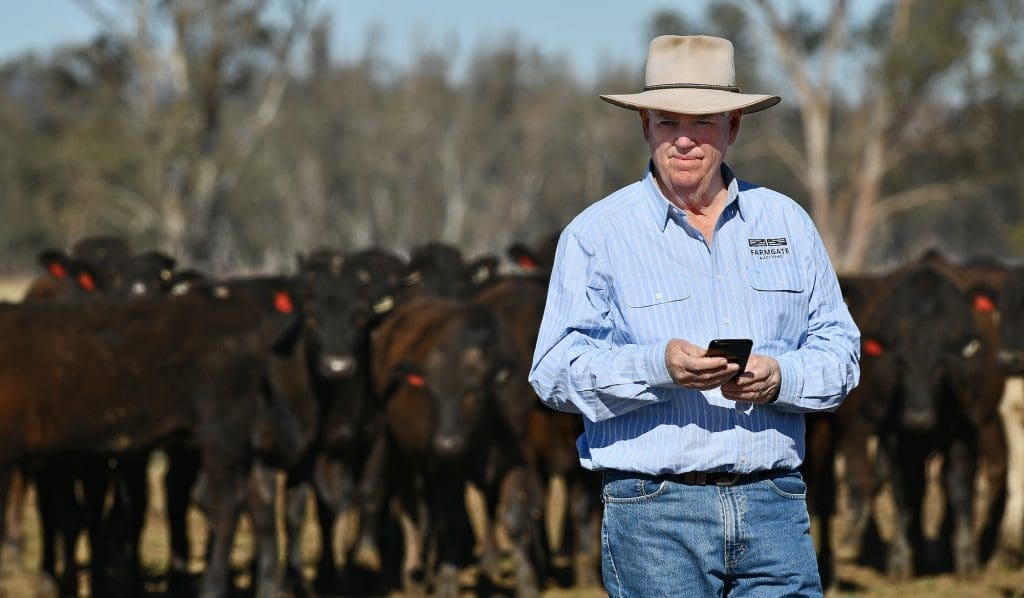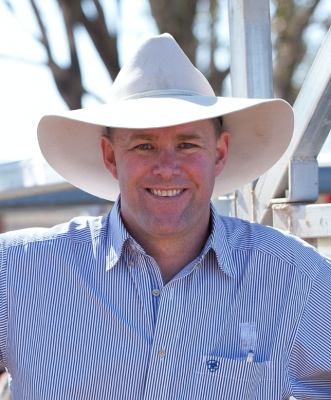
THE interface between physical auctions with online platforms has been a focus of discussion throughout the bull breeding industry throughout 2020.
The impact of travel restrictions under COVID saw a rapid uptake of online technology among both seedstock breeders, and in commercial cattle producers seeking to access genetics despite being unable to travel.
As an example of this growth, AuctionsPlus reported a 70 percent increase in the number of sales in 2020. Newer players in the online auction space, like Elite Livestock Auctions, Farmgate Auctions and Stocklive are also offering online bidding on bull sales in increasing numbers.
Across cattle and sheep sales, 2020 saw the number of lots purchased online increase by a staggering 588pc. In actual numbers this was up from 588 lots in 2019 to some 4048 in 2020. COVID, inevitably had a lot to do with growth like that, but the trend was already evident even before it arrived last March.

Source: AuctionsPlusFor many seedstock operations, the opportunity to access potential new clients through online sales is seen as being a ‘must’ for their sale. While no one can deny the opportunities are solidly based, there is more to securing successful interfaced sales than simply listing online.
Over the past few months, I have received a number of requests from seedstock operators looking to improve their marketing process and make the most from both online and physical auction.
The following areas are those which seedstock operators should review as part of their marketing process for 2021.
Profile
Regardless of the genetic merit of the sires on offer, the rigor of the selection process used on farm or the focus on commercially relevant traits, without a profile in the wider industry, it can be extremely difficult to market and sell bulls.
Attracting producers to look at sale bulls is a basic fundamental in sales. With the number of bulls and sales that are occurring across the country and online, it can become very easy for small and even medium-sized operations to be lost in the “noise.”
It’s important not to assume that a strong local following translates to a broader awareness from commercial producers. Quite often, seedstock breeders who have successfully serviced a local area find that their transition to a wider sales base with online sales does not carry the same demand or clearances they had come to expect.
These results are often due not to the quality of the cattle on offer, but to the fact that not enough people were aware of the sale and in consequence were not actively looking to participate in the sale.
If 2020 proved anything, it is that to be successful, studmasters and their prefixes need to stand out. With the broader ‘footprint’ provided by the addition of simultaneous online bidding, seedstock breeders should be looking at ways to build a profile beyond their local area, with clear messages about their program and genetics.
Examples of how well genetics have performed for clients in the form of simple case stories and photographs can be incredibly powerful.
Other profile builders include commercially-focussed competitions focussed on grass finishing or feedlot programs such as the RAS of NSW Sydney Beef Challenge or the national competitions such as Beef 2021.
The exposure to broader audiences and proof of how the genetics an operation perform in commercial environments can often be the difference between producers logging-on to a sale, or not.
Advertising
Advertising a sale and a program shouldn’t be overlooked or downplayed. For operations that have relied on word of mouth advertising or limited local advertising, the opportunity to build a broader client base is unlikely to be realised, despite an online sales component. It can be easy for animals and sales generally to be overlooked or overshadowed by other sales, simply through lack of promotion and advertising.
Catalogues
Fundamentally, a catalogue is the starting place for many people’s decision to participate or purchase at a bull sale. Traditionally catalogues have been restricted to what would work as a hard copy printed document for mailing and ticking at a physical sale.
The question could be posed: How valuable is this traditional form of catalogue in today’s market? Producers who have done their research prior to a sale and have a printed off list of sires with a checklist to determine the physical suitability of their chosen bulls shouldn’t be using a catalogue on sale day.
The opportunity to develop a much more effective catalogue that producers can access online is something to closely consider. Several autumn sales this year have offered online catalogues that have several still images, a high quality video and links to EBVs and indexes for each bull. The catalogue links to their online sales platform and several also had download options including a sales sheet for their bulls.
And in terms of expense, there was none of the usual costs of printing hard copies. The videos and photographs had to be taken for the sale anyway, and so this becomes a much more engaging and effective method of engaging with potential clients.
As a digital file, it can also be easily shared in emails, on websites and social media, greatly increasing the number of people who could review the sales information at much lower per person cost when compared to traditional hard copy and postage.
With many of the upcoming spring sales now looking at their marketing options, these three areas have to be considered and objectively reviewed. The starting question should be focused on what needs to be changed to ensure the online bidding opportunities of 2021 are not undervalued
 Alastair Rayner is the Principal of RaynerAg, an agricultural advisory service based in NSW. RaynerAg is affiliated with BJA Stock & Station Agents. He regularly lists and sell cattle for clients as well attending bull sales to support client purchases. Alastair provides pre-sale selections and classifications for seedstock producers in NSW, Qld and Victoria. He can be contacted here or through his website www.raynerag.com.au
Alastair Rayner is the Principal of RaynerAg, an agricultural advisory service based in NSW. RaynerAg is affiliated with BJA Stock & Station Agents. He regularly lists and sell cattle for clients as well attending bull sales to support client purchases. Alastair provides pre-sale selections and classifications for seedstock producers in NSW, Qld and Victoria. He can be contacted here or through his website www.raynerag.com.au
